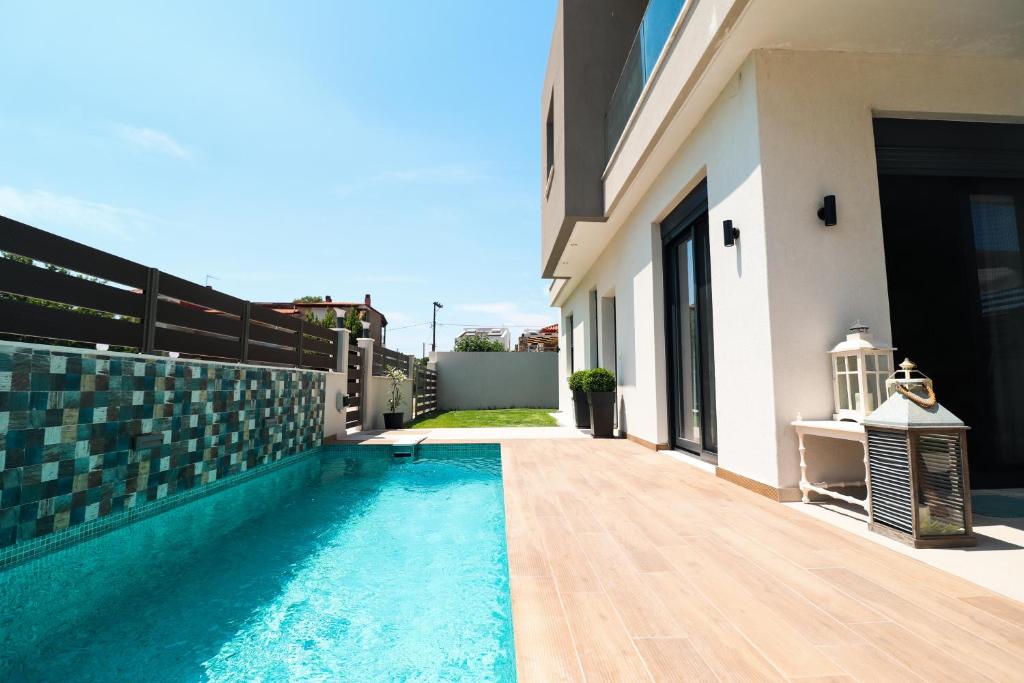
How Many Gallons of Water in a 24 Foot Round Pool 54 Inches Deep?
Share
When considering the capacity of your swimming pool, understanding how many gallons of water in a 24 foot round pool 54 inches deep is essential for maintenance, chemical balancing, and efficient usage. Many might overlook the importance of precise calculations. This post covers everything you need to know!
As a tech enthusiast or a professional, you likely appreciate precise figures. Having an accurate measurement not only aids in planning maintenance but also enhances pool enjoyment. Lets dive deeper into this topic.

Understanding Pool Volume Calculations
To grasp how many gallons are in your pool, one must first understand the calculation method. The formula for determining the volume of a round pool is:
Volume = r h
where:
- (Pi) is approximately 3.14
- r (radius) is half of the diameter of the pool
- h (height) is the depth of the pool
For a 24-foot round pool, the diameter is 24 feet, making the radius 12 feet. Given the depth is 54 inches, we must convert it to feet, which is 4.5 feet.
Step-by-Step Calculation
Lets calculate the volume step-by-step:
- Calculate the radius: 24 feet / 2 = 12 feet
- Convert the depth: 54 inches 12 = 4.5 feet
- Plug into the formula: Volume = 3.14 (12) 4.5
- Calculate: Volume = 3.14 144 4.5 = 2035.2 cubic feet
Now, to convert cubic feet to gallons, we use the conversion factor where 1 cubic foot equals about 7.48 gallons:
2035.2 cubic feet 7.48 = 15,196 gallons

Importance of Knowing Water Volume
Understanding the water volume in your pool is crucial. Here are some key reasons:
- Chemical Balancing: Proper chemical levels hinge significantly on the water volume.
- Maintenance Scheduling: Knowing the gallons can help you schedule maintenance effectively.
- Energy Efficiency: Efficient heating and filtration require precise measurements.
Tools for Pool Measurement
In todays tech-driven world, numerous tools can assist in measuring pool volume. Consider utilizing:
- App-based calculators
- Smart pool systems for real-time monitoring
- Volume calculators online
For a deeper dive into maintaining your pool efficiently, check out our guides on saltwater pool maintenance or on waiting times after shocking.

Factors Affecting Water Volume
While weve calculated the theoretical volume, several factors can affect actual water levels:
- Evaporation: Pools can lose a significant amount of water due to heat and sun exposure.
- Backwashing: Cleaning your filter system periodically can reduce water levels.
- Rain: Accumulated rainwater can increase the water volume unexpectedly.
For more on what causes changes in pool pH, check our blog on pool pH changes.
Best Practices for Pool Maintenance
A well-maintained pool means a better experience. Here are some best practices:
- Regular Water Testing: Test water chemistry weekly to ensure safety.
- Chemical Application: Apply chemicals after calculating volume.
- Keep It Clean: Regular cleaning keeps water quality high.

Home Value Impact
Finally, installing a pool can impact your home value. Consider the following:
- Attractive Feature: Many buyers see a pool as a desirable feature.
- Investment Return: The value added can sometimes exceed the cost.
For insights on home value impacts, refer to our article on pool value impact.
FAQs
1. How can I reduce water evaporation in my pool?
Utilizing pool covers, landscaping, and maintaining proper water levels are effective methods.
2. What should I do if my pool water level drops?
Investigate potential leaks, check for evaporation, or add water as necessary to maintain balance.
3. Do I need to adjust chemicals after adding water?
Yes, adjust your chemicals according to the newly measured water volume to ensure safety.
As an Amazon Associate, I earn from qualifying purchases.
